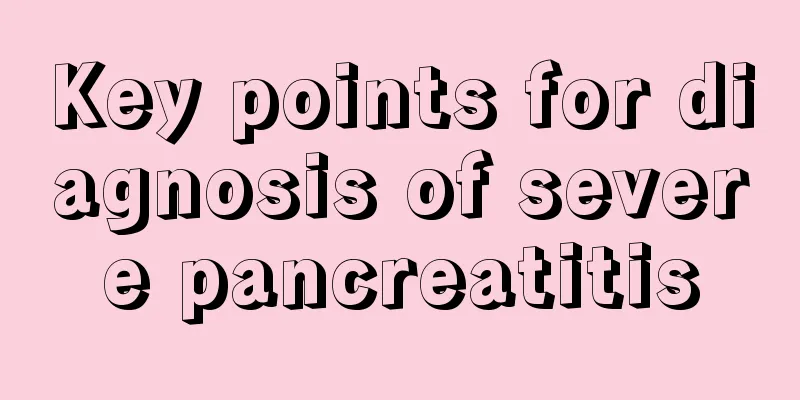Sequelae of renal dialysis

|
Renal dialysis is a treatment for people with kidney problems that uses modern equipment to mimic the principle of kidney detoxification to prolong their lifespan. But renal dialysis also has many side effects. Such as low blood pressure, headache, nausea, vomiting, convulsions and so on. Because renal dialysis causes great harm to the body, temporarily reducing the symptoms of renal dialysis cannot completely cure the disease. The adverse reactions will be greater during the first renal dialysis, but will gradually decrease afterwards. 1. Imbalance syndrome: It is common in patients with very high urea nitrogen and creatinine levels and obvious symptoms of uremia, especially during the first dialysis and dialysis induction period. The main reason is that after dialysis, some substances, mainly urea, are unevenly distributed between the blood and brain tissue, and the imbalance of pH value causes cerebral edema and brain hypoxia, which manifests as headache, fatigue, lethargy, nausea and vomiting, high blood pressure, sleep disorders during and after dialysis. Severe cases may have mental abnormalities, epileptic seizures, coma and even death. (ii) Hypotension: The most common complication of hemodialysis. The causes include decreased effective blood volume, excessive and rapid ultrafiltration, autonomic neuropathy, decreased vasoconstriction, high atrial natriuretic peptide levels, and the effects of antihypertensive drugs. Symptoms include dizziness, chest tightness, pale complexion, sweating, blackouts, nausea and vomiting, muscle cramps and even loss of consciousness. Treatment is mainly to rapidly replenish blood volume while slowing down blood flow and reducing or suspending ultrafiltration. Preventive measures include priming the dialyzer, gradually increasing blood flow, using sequential dialysis or high sodium dialysis, and asking patients to control weight gain between dialysis sessions to reduce ultrafiltration volume. (III) Hypoxemia: It is more common in acetate dialysis, and the reason is related to the metabolism of acetate in the body and its reduction of CO2 and HCO3- concentrations in the blood. Poor biocompatibility of the dialysis membrane can lead to the accumulation of leukocytes in the pulmonary capillaries, affecting the ventilation function and is also an important cause of hypoxemia. The clinical manifestations are mostly not obvious. Patients with existing cardiopulmonary diseases or the elderly may experience symptoms of hypoxia, and even induce angina pectoris and myocardial infarction. Treatment is oxygen inhalation through a nasal cannula. Preventive measures include using bicarbonate dialysate and using a biocompatible dialyzer. (IV) Hemolysis: It is mostly caused by abnormal dialysate and dialysis machine failure, such as if the dialysate is hypotonic, too hot, or has too high chlorine and chloramine or nitrate content. Other causes include heterotypic blood transfusions, disinfectant residues, etc. In acute hemolysis, patients experience pain in the returning veins, chest tightness, palpitations, shortness of breath, irritability, and may be accompanied by severe low back pain and abdominal cramps. In severe cases, patients may experience chills, chills, low blood pressure, arrhythmia, hemoglobinuria, and even coma. Hypotonic dialysate may also cause water intoxication or cerebral edema. Small and slow hemolysis will only manifest as worsening anemia. |
<<: The principle of renal dialysis
>>: Principles of Renal Dialysis
Recommend
What causes bleeding when brushing teeth
Many people experience bleeding when brushing the...
How to choose an authoritative hospital for esophageal cancer
The relevant selection criteria of esophageal can...
Is the smell from pharmaceutical factories harmful to the body?
A pharmaceutical factory refers to a production r...
What is the function of glutaraldehyde disinfectant?
Glutaraldehyde disinfectant is a new type of medi...
What to do during pregnancy and childbirth during the early stages of nasopharyngeal cancer
Nasopharyngeal carcinoma is a serious malignant t...
Can I eat mango after surgery
From the perspective of food characteristics, man...
Complete list of moxibustion effects
In traditional Chinese medicine, emphasis is plac...
Only by combining cervical cancer examination can patients discover the disease as early as possible
Cervical cancer is one of the common malignant tu...
There are 5 reasons for swollen lymph nodes in the neck
In daily life, we always see that some people’s n...
Crooked teeth are also a "disease"
Symptoms such as uneven teeth or "underbite&...
How to take care of bangs
For female friends, a good-looking hairstyle has ...
What are the symptoms of moderate anxiety disorder
Anxiety disorder is a relatively common mental il...
Will the big toe bone get bigger?
The human body's feet are very important beca...
What is the reason for waist weakness
We will find that older people feel that they hav...
To prevent lymphoma, you need to prevent acidic constitution
Acidic constitution is the main factor leading to...









